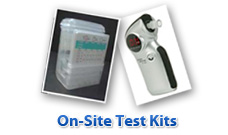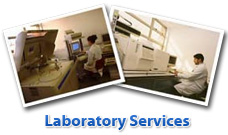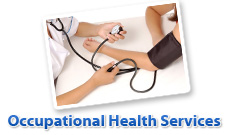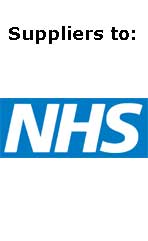Substance Abuse Screening In The Workplace
Prompted by a need to guarantee safety, well-being and health of employees and visitors, employee alcohol and drug policies have become more common within the United Kingdom. Though, there are still numerous misinterpretations associated with the practice, which may cause worry amongst the personnel being screened.
Substance Abuse Screening In The Workplace – Where is the danger?
Numerous people suppose that the impact of illegal drugs throughout the workplace is a trivial issue. We all have taken notice of Christmas drink-driving TV advertisements and recognise that drink-driving and drug-driving can cost lives, so isn’t it possible to rely upon most people’s common sense? Alas, around fifty percent of all road and industrial deaths around the UK are connected with drinking, drug abuse, or both. Present-day figures reveal that in excess of two thirds of drug abusers are engaged in full-time jobs, meaning that the typical drug misuse is, in effect, the average staff member. Freshly released Home Office reports estimate the number of 16 to 29-year-olds who misused illicit drugs within the last year at a staggering fifty percent. So, you cannot treat this as somebody else’s problem, it is relevant to just about every place of work. While the consumption of illegal substances doesn’t necessarily suggest irresponsible attitudes within the working environment, it does dramatically increase the probability of accidents, absenteeism, a drop in productivity, damage to plant and equipment, being involved in a lawsuit and a higher than average turnover of staff.
Substance Abuse Screening In The Workplace – What can be done? Isn’t employee drug and alcohol testing disruptive?
Numerous organizations only administer workplace drug screening in response to an accident, an incident or near miss, or in the event they have reasonable grounds for concern or suspicion that an employee could be unsafe for active duty. Given the large assortment of possible dangers within industrial companies, a lot of managers assume it to be entirely prudent to perform testing in such instances, as a measure to prevent them from occurring in future.
Of course, random workplace drug screening takes testing a stage further, where a fraction of the personnel is picked at random to provide a sample of urine and/or breath. This might sound a little intrusive, but it is actually very commonplace for as few as five percent of the staff to be screened up to once in every year. This is the same as only one in 20 people being drug and alcohol screened, or perhaps, as an individual, your probability of being screened might be just once every 20 years. Incredibly, such minimal screening has been demonstrated to decrease failure rates from as high as 46% down to as little as only 2% in as little as only a couple of months. This just shows that the typical substance abuser found within the work environment isn’t hopelessly addicted and unable to change, but is simply making lifestyle decisions which may possibly be adjusted towards a more agreeable outcome.
Substance Abuse Screening In The Workplace. Could this be regarded as a violation of a person’s civil Liberties?
While some individuals within the company can be hesitant at first regarding the likelihood of workplace screening, most recognise that this is primarily undertaken to assure the well-being of everyone throughout the work environment. As long as the amount of diagnostic testing is proportionate to the dangers throughout the workplace and does not deliberately impact upon personnel life outside of work, it does not pose a threat to people’s human rights. Around the United States, over ninety eight percent of the most successful 1000 companies drug test their work force without issue.
Is there any danger when using drugs and alcohol away from work?
A lot of illegal substances have certainly created a softer image due to their repeated exposure throughout the nation’s television, radio and newspapers. Indeed, terminologies including “recreational cocaine use” have been shown to cause a great amount of harm in misleading the general public. For some teenagers, snorting cocaine is actually more habit forming than heroin and, for this reason can’t be abused recreationally without significant threat of addiction. Dependence aside, the purity of cocaine has decreased from an average of 45% purity in 2004 to approximately 25% purity as of 2010 (with the purity of cocaine as low as nine percent reported). Worryingly, the powders that the dealers use to pad out the cocaine powder can be anything from dangerous anaesthetics, carcinogenic pharmaceuticals, cat worming powders, all the way through to to insecticides. The underlying message is that you can certainly never rely upon a drug dealer.
In fact, drugs typically thought of as soft drugs nevertheless carry dangers. Right now in England and Scotland, a dramatic 92% of people admitted for therapy for mental health issues are regular users of cannabis. With this in mind, workplace drug and alcohol testing truly has the realistic opportunity to take on wider antisocial and mental health concerns when it eventually is more common.
For more information on on-site drug testing as well as home drug test kits, browse through www.drug-aware.com
Information on the author: Christopher Evans is the Technical Director of Drug-Aware Ltd, a supplier of Substance Abuse Screening In The Workplace, alcohol and drug test equipment, laboratory services as well as drugs and alcohol awareness training. He has instructed literally thousands of delegates spanning hundreds of organisations, Her Majesty’s Prison Service, the British police and hospitals and GP surgeries across the United Kingdom.








